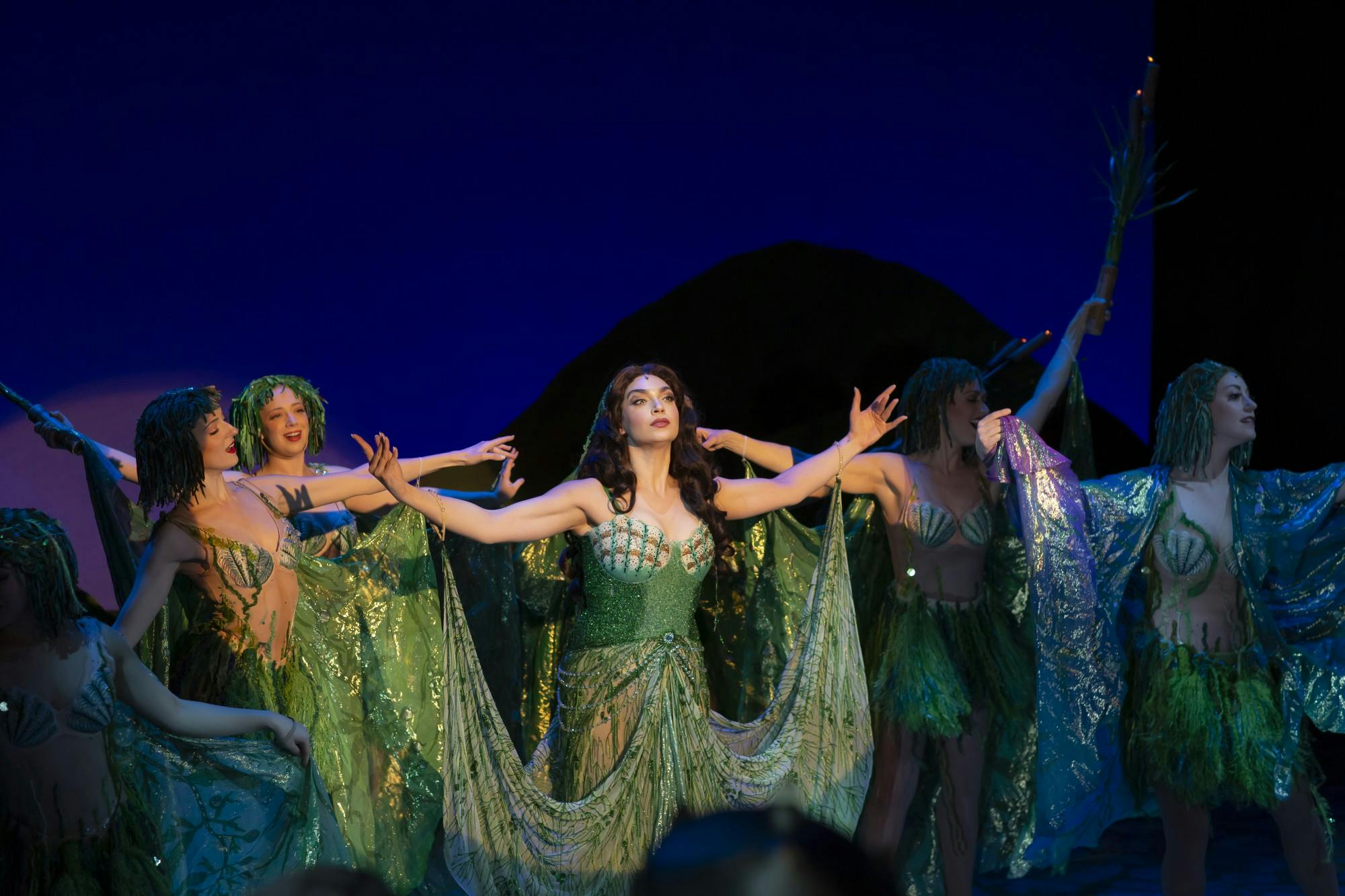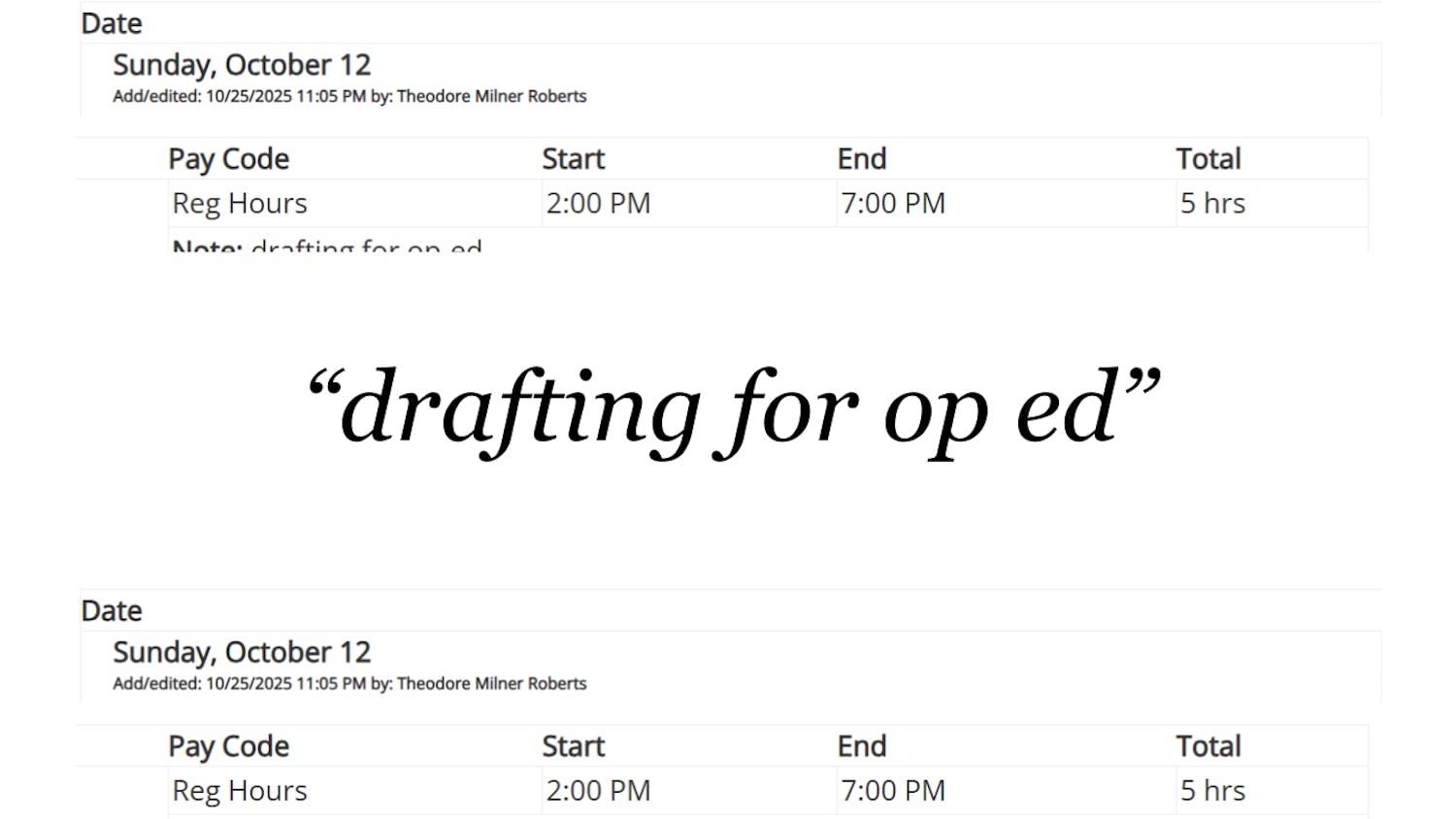From April 13 until May 15, Northern Stage theater company is performing “Monty Python’s Spamalot” — a musical comedy adaptation of the beloved movie “Monty Python and the Holy Grail” — as part of its 2021-2022 season. The tale is a parody of King Arthur’s quest to find the Holy Grail, featuring nods to the history of musical theater and feel-good ballads. In the play, King Arthur and his knights are sent on a mission by the elusive Lady of the Lake to first find the Holy Grail, and then to put on a Broadway show.
Stacia Nugent ’23 and Sophia Serpas ’24 performed in the ensemble while Betty Faul-Welfare ’23 worked on the show’s lighting design with the theater department chair Dan J. Kotlowitz. Theater professor Carol Dunne directed the show and also serves as producing artistic director of Northern Stage.
“Spamalot” is famously one of the silliest shows in musical theater, bringing the humorous energy of Monty Python onto the stage. The setting changes often, ranging from the castles of France to Camelot reimagined as Las Vegas.
“This spectacular and very silly show is more than just catchy — it is a Valentine to everything we love about musical theater,” Dunne wrote in a statement from the show’s program. “We’ve got tap dancers for you, and ninjas and love songs and winks to the history of musical theater.”
Nugent, who is performing in the show with professionals as part of her experiential learning “e-term” program, plays multiple characters in the ensemble.
“My roles range from being a Monk to a Knight of Ni,” Nugent said. “Due to this, I have quite a few quick changes, which means I have to get creative. If you see a bunch of religious monks walking around with Bibles in hand, know that at least one of them is wearing full Camelot Turret Girl attire underneath.”
The constant location shifts are one of the driving factors of the decisions of the lighting design. Kotlowitz emphasized that the lighting makes the setting shifts between Camelot and Finland clear for the audience.
“You’re in the middle of a King Arthur play and then suddenly they break into Fiddler on the Roof,” Kotlowitz said. “The lighting sort of helps to make those transitions visual. There are moments when suddenly you’re in a disco, and playing with those different styles has been rewarding.”
While “Spamalot” is a silly show by nature, the professional setting of Northern Stage demands a seriousness and decorum when performing with the cast. Nugent and Serpas both reflected on the professionalism of their e-term experience.
“This is my first full production that’s in person since the pandemic started,” Serpas said. “Additionally, it’s been really cool to work alongside professional actors and get a glimpse into how people make this their career.”
Nugent specified that the unconventionality of the show is aiding her growth as an artist.
“Sure, ‘Spamalot’ is a silly show that definitely doesn’t take itself seriously, but I’ve observed that in order to believably live in its silliness, I have to not only be comfortable with who I am but become willing to share it all without fear of judgment or condemnation — no matter how weird or unconventional it may seem according to societal standards,” Nugent said.
However, Nugent added that the e-term has been physically and mentally challenging as well, noting sometimes feeling inadequate when surrounded by such accomplished actors.
“As I watch my beautiful castmates sing melodiously and dance rhythmically on the stage, it’s hard not to be amazed,” Nugent said. “But whenever I find myself sharing the stage with these professionals, I feel like, well, an impostor. Part of me feels guilty and undeserving of being around them, and I can’t help but think that I’m ruining scenes that we share. Additionally, I find it challenging to not downplay my abilities.”
The musical is filled with nods to the canon of musical theater: Joseph Stein’s “Fiddler on the Roof,” Stephen Sondheim’s “Company” and references to famous Broadway divas like Liza Minnelli. In Act 2, the Lady of the Lake, a parody of Guenevere portrayed by Michelle Beth Herman, laments “Whatever Happened to my Part,” playing into the trope of Minnelli, a notorious prima donna. She complains about the “producers” and belts longingly into the audience. At one point, the stage managers of the show make an appearance and Herman criticizes them, playing up the trope of the “difficult” Broadway diva.
“One of my favorite parts about the show is how it’s a caricature of the culture of theater and the canonical works of what we deem like American musical theater,” Kotlowitz said. “I liked that we got to kind of make fun of ourselves in this way. It’s a self-effacing but joyful kind of work.”
The musical attempts to capture the many sub-communities within theater itself. Songs like “His Name is ‘Lancelot’” and “You Won’t Succeed on Broadway” respectively allude to the robust LGBTQ+ and Jewish artistic communities in theater.
“There are a lot of aspects of theater that the show touches on — the people who have historically contributed to it and the general working environment of musical theater,” Kotlowitz said.
While addressing theater culture, performers also made jokes relevant to inhabitants of the Upper Valley. During the show, the cast picked an audience member to find the Holy Grail. King Arthur, played by Jonas Cohen, asked for the audience member’s name and said that he is part of the “good people of the Upper Valley, next to Bernie Sanders and Ben and Jerry.”
More than anything, the performers’ humor in “Spamalot” created an energetic and lively atmosphere. The Northern Stage audience was cracking up at almost every joke and lighting shift.
“It’s impossible to work on ‘Spamalot’ and not end up with ‘Always look on the bright side of life’ stuck in your head,” Dunne said, referencing one of the show’s recurring songs.
With triple-threat performers, Monty Python’s humor, a little bit of satire and the intimate space of the Northern Stage theater company, “Spamalot” managed to poke fun at musical theater, retell the tale of the Holy Grail with a Broadway twist and bring joy to an Upper Valley audience.




